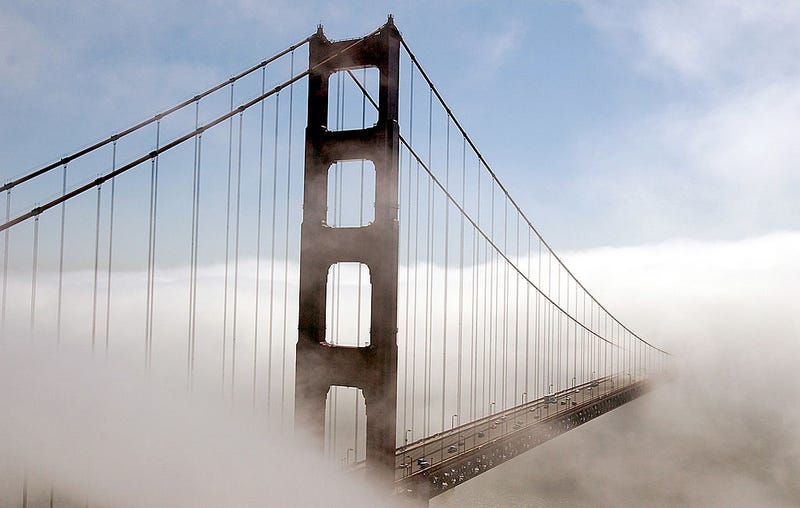
Karl the Fog is a staple of San Francisco life, but experts are concerned that climate change may be impacting the city's most beloved weather pattern.
As the climate warms, evidence is suggesting that San Francisco coastal fog is on the decline. After an analysis of fog records dating back to 1950, Todd Dawson, professor of integrative biology at UC Berkeley, found that there has been a 33% reduction in fog frequency, the San Francisco Examiner reported.

"We're really perturbing the climate system," Dawson said to the paper. "We're changing the way air circulates. That means that changes the way our storms behave, the severity of the storms and other things like fog formation and duration."
Dawson discovered that fog season is starting later and ending earlier than it did in the past and the number of foggy days overall has dropped dramatically. "We've lost basically three hours per day of fog," he said.
San Franciscans may feel lost without Karl's familiar cozy blanket, but the loss of fog would also be a major ecological issue.
Coastal fog drip is critical in regulating temperatures, supporting the hydrologic system, keeping redwoods hydrated, recharging streams and helping agriculture thrive during dry summer months. An important reason the Bay Area has seen fewer fires than our inland counterparts is partially due to the moisture the fog provides.
However, more research will be needed before a definitive statement on the fog's behavior is made, the paper said.
LISTEN on the Audacy App
Sign Up and Follow Audacy
Facebook | Twitter | Instagram
